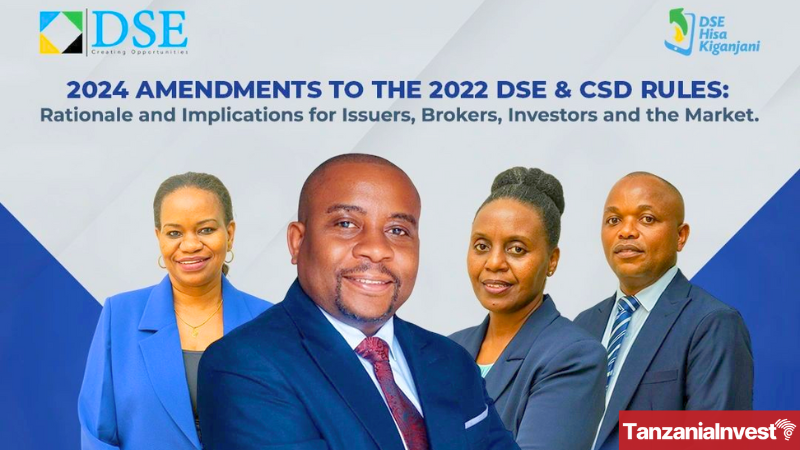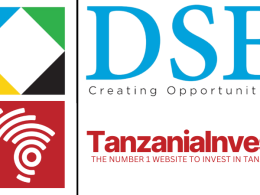Tanzania’s Dar es Salaam Stock Exchange (DSE) announced amendments to its 2022 DSE & Central Securities Depository (CSD) Rules, effective from 2nd June 2025, aiming to enhance market liquidity, price transparency, investor protection, and operational efficiency.
The amendments were presented on 26th May 2025 by the Chief Internal Auditor of the DSE, Mecklaud Edson, during a Zoom stakeholders’ meeting.
The revised rules affect 11 DSE and CSD framework parts, including listing procedures, definitions, trading processes, and investor safeguards. The amendments are as follows:
• The definition of a block trade has been updated to refer to a single lot of any security with a minimum value of TZS 250 million, up from TZS 200 million. A single lot has been defined as the number of securities comprising an order from one buyer to one seller. This aims to eliminate price manipulation and ensure fair execution of large trades.
• The definition of price cap limit has been introduced as a fixed percentage of the previous closing price to limit daily fluctuations.
• The price cap is 15% for securities with a market capitalization below TZS 1 trillion, 5% for those above TZS 1 trillion with over 2 billion issued shares, and 2% for those with fewer than 2 billion issued shares. An additional 5% variation is allowed for five working days following a corporate action.
• A new definition of closing price has been adopted, calculated as the volume-weighted average price (VWAP) of trades executed during the trading session, provided a minimum of 100 shares is traded per transaction. This replaces the previous rule that relied on a percentage of issued shares and aims to resolve the issue of price stagnation.
• Rule 281 has been amended to reinforce that only trades with a minimum of 100 shares will influence the closing price. Smaller trades will not affect end-of-day valuations.
• The rules now formally define corporate actions as any event initiated by a listed company that could affect shareholders or securities, including mergers, acquisitions, dividends, rights issues, stock splits, and related events. Issuers must comply with reporting and disclosure standards for such actions.
• The number of tick size levels has been reduced from five to two: a tick size of TZS 5 for securities priced below TZS 1,000, and TZS 10 for those at or above TZS 1,000. This change aims to increase price movement frequency and improve price discovery.
• Market trading hours have also been extended, with trading now starting at 9:00 am instead of 10:00 am. Trading phases will remain the same: pre-open, auction, continuous trading, and close.
• Rule 44(2A) has been amended to require Tanzanian citizens to provide their full name as issued by the National Identification Authority (NIDA) for Know Your Customer (KYC) verification. Other forms of ID, such as voter’s cards and passports, will no longer be accepted for KYC purposes for citizens.
DSE’s Chief Legal Counsel, Mary Mniwasa, confirmed that the amendments were developed through a stakeholder engagement process that began in 2023.
On her part, DSE’s Head of Risk and Compliance, Happy Mushi, explained that the DSE’s Clarity surveillance system has been updated to reflect the new rules.
She said the system will monitor and flag attempts at price manipulation and that licensed traders and firms will be held personally and institutionally accountable for violations.
The exchange confirmed that system upgrades are underway to accommodate the changes and ensure smooth implementation and reiterated that all market participants must comply with the new rules by 2nd June 2025.







